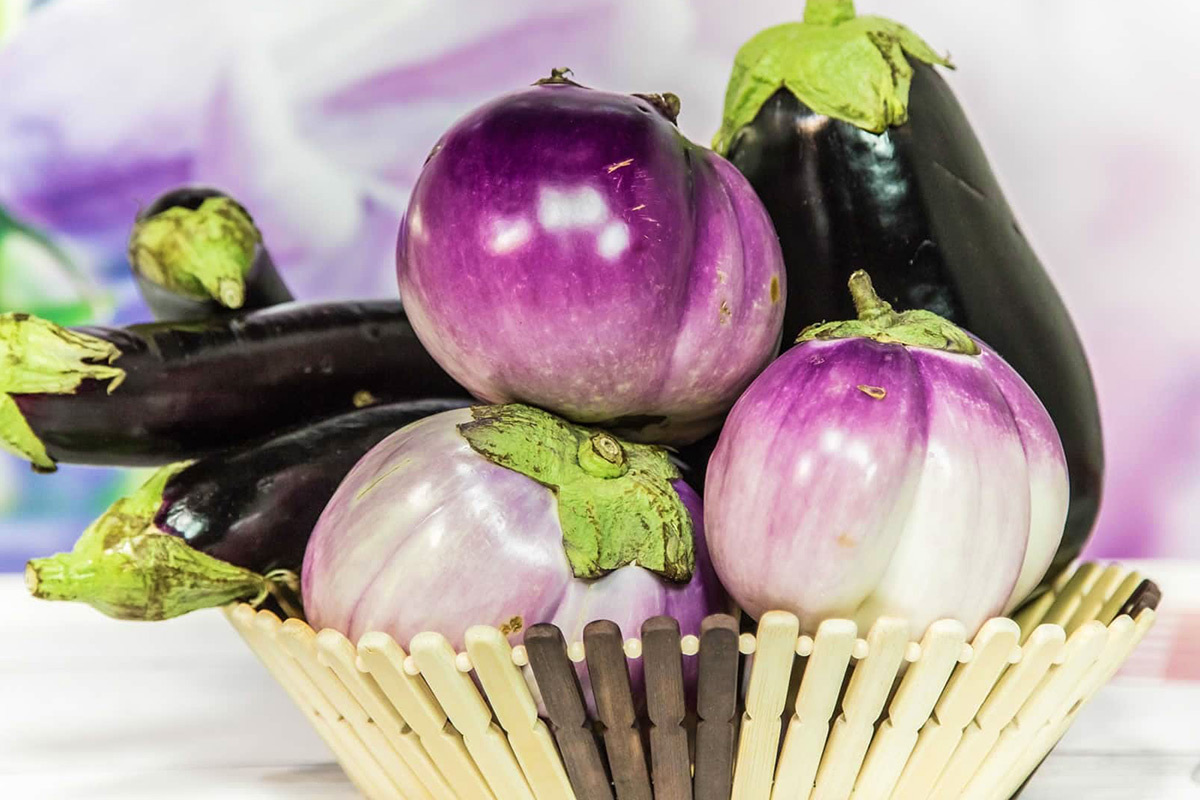Seasonal vegetables June: the eggplant and its properties

Eggplant is a herbaceous plant that grows from 30 cm to just over one meter tall. Its flowers are large with a colour ranging from purple to white. The fruits, on the other hand, are large, elongated or round berries, normally black, edible only after cooking.
A vegetable beloved by Italians and not only, there are different varieties of eggplants and their use in the kitchen is really varied: you can eat it fried, baked or grilled; as a first, second or side dish. Among the typical recipes we can not fail to mention the famous parmigiana, pasta alla Norma and baked eggplant meatballs.
Origins and curiosities
The eggplant is native to India. The first written reference is found in the Qimin Yaoshu, an ancient Chinese agricultural treaty completed in 544. In Europe it seems to have been practically unknown until the sixteenth century, in Italy it was initially called petonciana or even petronciano.
Properties and benefits
Eggplant is a vegetable rich in beneficial properties for the health of our organism. First of all it contains many minerals: potassium, phosphorus and magnesium, followed in smaller quantities by zinc, copper, iron, calcium and sodium. It is a source of vitamins, including A, various B vitamins, C, K and J.
Eggplant contains very few calories, so it is recommended in slimming diets. Among the various benefits, we cannot fail to mention its important purifying action, due to its high water content (around 90%).
Thanks to the content of vitamins and mineral salts, eggplant is one of the perfect vegetables to combat fatigue during the hottest periods, restoring the values altered by excessive sweating in our body.
Also our cardiovascular system benefits from eggplants, as they have the right properties to balance blood cholesterol levels.





